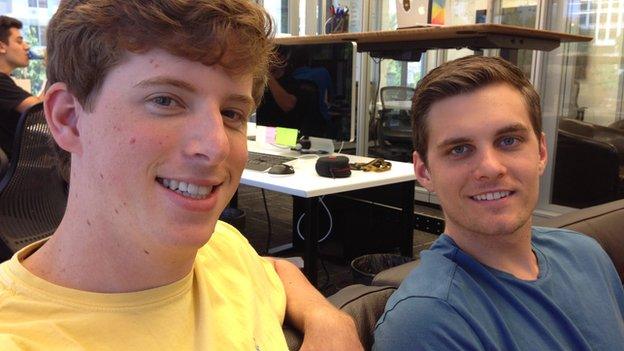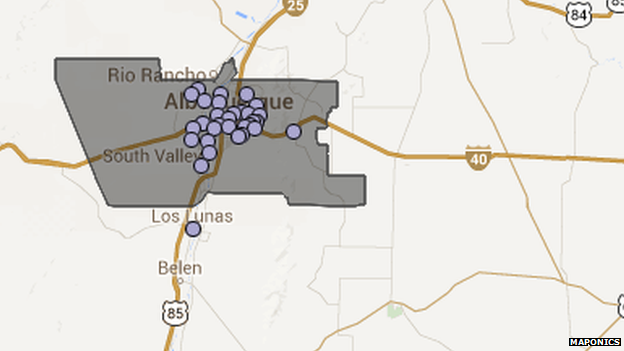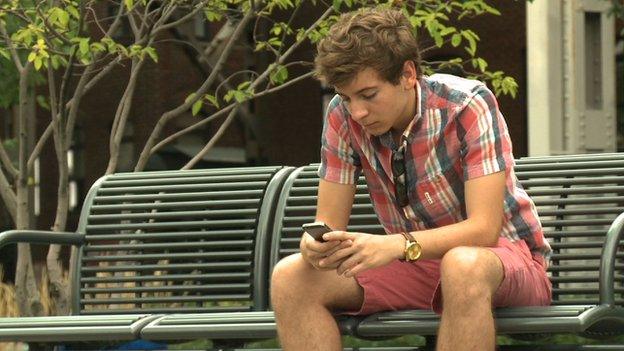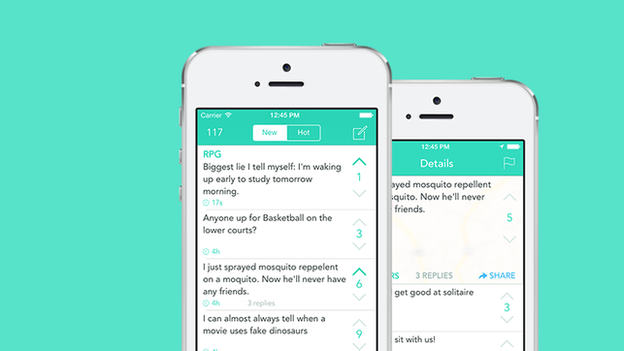YikYak app considers blocking usage in UK schools
- Published

App developers Brooks Buffington and Tyler Droll, both 23, say YikYak was designed for college campuses.
The developers of the anonymous chat app YikYak have told Newsbeat it could be blocked from UK schools.
YikYak allows users to post messages, visible to others nearby, whilst hiding their identity.
The company has used geofencing technology to disable the app in US schools after reports of bullying.
Tyler Droll, CEO and co-founder of YikYak said there was "no doubt" the company would do the same overseas.
After launching in November 2013, YikYak has been criticised for allowing school students to abuse others anonymously.
Droll said the company used the location-based nature of the app to block it from use.
"We had to plot over 100,000 schools across the nation and then using your GPS it determines whether or not you are at a school campus.
"So if you open the app and you are in that area it will say you are at a banned area and you will not be able to use the app here."

YikYak uses GPS technology to block usage of its app from the majority of schools in the US.
Will Haskell remembers the day YikYak arrived at his school in Connecticut.
"It was unbelievable how quickly it spread," said the 18-year-old student.
"I heard about it about at 9am or so, and by noon I think everyone in the school had the app."
He claims the anonymous nature of YikYak allowed people to post things they otherwise would not.
"I had no idea that there were racist, homophobic, xenophobic, sexist thoughts going on in the minds of my classmates.
"I spoke to one girl who left school in tears and didn't come back the next day."

Wll Haskell, 18, said YikYak led to anonymous bullying at his high school in Connecticut
YikYak has worked with the geographic data firm Maponics to plot the locations of schools in the US.
The company said it could not block its app from all UK schools without a similar partnership.
"We are in the process of looking for that and it has worked great in the states so no doubt we will do it overseas," said Tyler Droll.
Whisper, Secret and Rumr are among other anonymous messaging apps becoming more popular.
Co-founder of YikYak Brooks Buffington puts the attraction down to a desire for privacy.
"YikYak is very much real time in the moment and not just creating this backlog of everything that you have ever done or tweeted or put on Facebook"

YikYak allows users to send anonymous messages to others nearby
The developers say the app was created for use on college campuses, and it seems to be used in that context without many complaints.
But in high schools, the experience has been very different.
"It was almost a competition to see who could come up with the meanest thing," said Will Haskell.
But he suggests that the app is not the problem, rather the way people choose to use it.
"What needs to change here isn't the apps, but the culture and the way that people react when given this opportunity for anonymity."
YikYak is based in Atlanta, Georgia and recently secured $10m (£6m) in funding.
Follow @BBCNewsbeat, external on Twitter and Radio1Newsbeat, external on YouTube